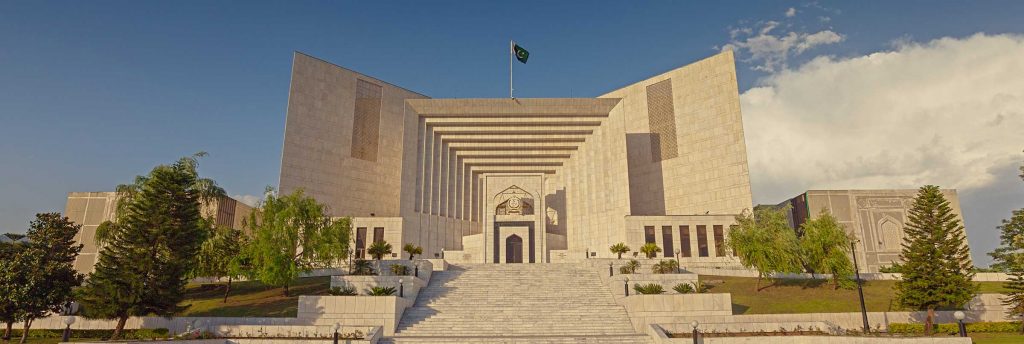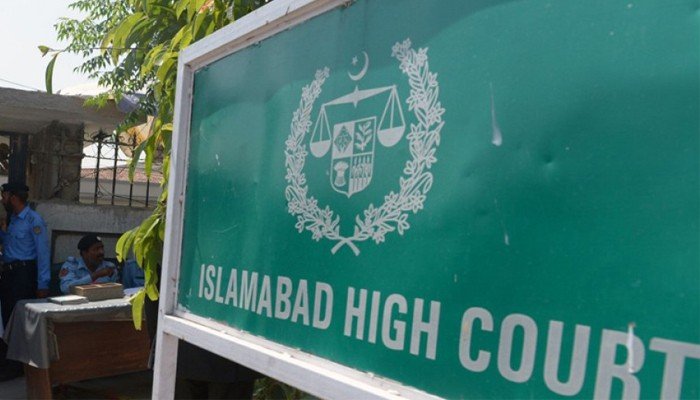SC resolves the ZAB judicial murder case on February 20.
The murder case of former prime minister Zulfikar Ali Bhutto was assigned for a presidential reference hearing by the Supreme Court of Pakistan (ECP) on Friday.
On February 20, the case will be heard by the nine-member SC panel, which is led by Chief Justice Qazi Faiz Isa.
Justices Jamal Khan Mandukhel, Justice Aminuddin Khan, Justice Yahya Afridi, Justice Mansoor Ali Shah, and Justice Sardar Tariq Masood are the other members.
The broader bench also includes Justices Muhammad Ali Mazhar, Hasan Azhar Rizvi, and Musrat Hilali.
On the prior hearing, the apex court had requested written submissions from the judicial assistants.
Asif Ali Zardari, who was president at the time, filed a reference in 2011 opposing Zulfikar Ali Bhutto’s death by court order.
Timeline for the ZAB case
The long-dormant presidential reference on the late Prime Minister Zulfikar Ali Bhutto’s death sentence has been revived by former President Asif Ali Zardari.
Filed in 2011 under Article 186 of the Pakistani Constitution, the reference reappeared on December 12 when Chief Justice Qazi Faez Isa’s 9-member Supreme Court bench took up the matter.
The historical background of Bhutto’s death
The dynamic leader Zulfiqar Ali Bhutto, who witnessed General Zia-ul-Haq overthrow his elected government in 1977, was put to death after a contentious trial.
The reference is based on the claim made by former Chief Justice of the Supreme Court Naseem Hasan Shah that the Zia-ul-Haq administration had an impact on the trial bench.
The National Constitution’s Article 186 gives the President the authority to consult the Supreme Court on issues of public concern.
Asif Zardari has raised five important points that center the present hearing. These arguments are to human rights, judicial precedent, the justice of the death penalty, compliance with Quranic directives, and the adequacy of the evidence.
During the previous hearing,
Justice Mansoor Ali Shah questioned the lawyers during the hearings about the legal matter in the reference and if the court ought to address or look into the interview of one of the seven justices on the bench who rendered the decision against Bhutto.
CJP Isa said that even one judge’s view mattered, given the ratio in which the decision was rendered.
The CJP said that the court was now considering both the integrity of the law and an individual’s dignity. He went on, “The court wants to set a good example.”
“It must be seen whether the Supreme Court was guilty, the prosecution, or the martial law administrator at the time,” the top judge added.
Amicus curiae Makhdoom Ali Khan told the court that the former chief judge Naseem Hasan Shah’s interview served as the foundation for the Bhutto presidential recommendation. CJP Isa gave the court employees instructions to open the copy of the interview that the relevant channel supplied to the court.
Another amicus curiae, Barrister Salahuddin Ahmed, stated during the hearing that his wife was Nawab Ahmed Kasuri’s granddaughter and enquired as to whether the parties objected to his help. Attorney Farooq H. Naik stated that Bhutto’s heirs were in agreement.
Advocate Khawaja Haris, in a same vein, stated that his father represented DG FSF Masood Mahmood in the Bhutto case and inquired as to whether any side objected to him. The CJP said that everyone respected his neutrality and that no one had any complaints against him.
Raza Rabbani, however, took issue with Khawaja Haris’s status as an amicus curiae, leading the latter to distance himself.


 Latest News3 days ago
Latest News3 days ago
 Latest News3 days ago
Latest News3 days ago
 Latest News3 days ago
Latest News3 days ago
 Latest News3 days ago
Latest News3 days ago
 Latest News3 days ago
Latest News3 days ago
 Latest News3 days ago
Latest News3 days ago
 Latest News3 days ago
Latest News3 days ago
 Latest News3 days ago
Latest News3 days ago





















